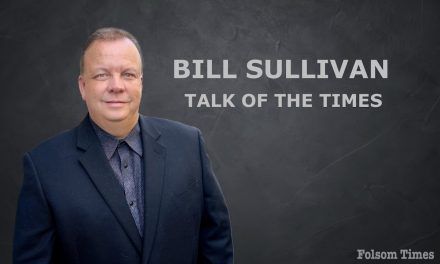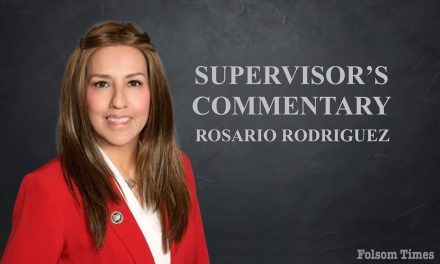Last Monday, California water officials slogged through deep snow 7,000 feet above sea level, west of Lake Tahoe, to affirm what everyone already knew: A series of Pacific storms has generated record-level amounts of precipitation, filling reservoirs, inundating low-lying towns and fields and threatening more disastrous flooding as the Sierra snowpack melts.
Its negative aspects aside, the immense amount of rain and snow is welcome relief from drought that has plagued the state for the past three years. But it also is a warning about California’s boom-and-bust precipitation cycle, which is becoming more pronounced with climate change.
It’s a warning that we must do a better job of capturing and conserving water when precipitation is plentiful, because the next drought is just around the corner. That means building more storage, such as the long-delayed Sites Reservoir on the west side of the Sacramento Valley, creating more sinking basins to replenish overdrafted underground aquifers and, most importantly, doing something about the chaotic way in which we manage water.
California has been a state for 173 years and its residents have been squabbling over water for its entire history, beginning with conflicts between gold miners and pioneer farmers. Battles have been waged in the Legislature, in the courts and in ballot measures, but they have succeeded mostly in making water management increasingly obtuse.
The managerial system – or, more accurately, non-system – now in place is a mishmash of federal, state, regional and local agencies which tend to respond to the conditions of the moment, sometimes in conflict with one another, while dealing with laws and regulations that are beyond Byzantine in their complexity.
The California constitution declares that water is a public trust to be used for reasonable and beneficial purposes, but there have been countless political and legal duels over the interpretation of those broad terms, particularly over the legal standing of water use rights, some of which date to the Gold Rush era.
In its landmark 1983 decision involving damage to Mono Lake from water diversions by the city of Los Angeles, the state Supreme Court noted the conflict between water rights and the public trust doctrine, saying, “the two systems of legal thought have been on a collision course.” Fundamentally, the court declared that honoring the public trust doctrine, which includes environmental protection, is at least equal to water rights, and perhaps superior, when the two are in conflict.
However the decision did not stop the legal and political jousting. Most recently, the conflict has been played out in skirmishing over reductions in diversions from the beleaguered Colorado River and in jousting over management of the San Joaquin River and its tributaries.
The state Water Resources Control Board has attempted for years to forge “voluntary agreements” to reduce agricultural diversions from the San Joaquin River system to enhance habitat for fish and other species. Meanwhile, environmental groups, citing the public trust doctrine, have pressed the board to increase natural flows by decreeing new water quality standards.
The conflict over the San Joaquin and other rivers may be resolved by the Legislature. Four bills have been introduced which, taken as a whole, would give the water board sharply increased powers to enforce the public trust doctrine, levy stiff fines for unauthorized diversions and force holders of water rights, even those dating back to the 19th century, to prove their validity.
Senate Bill 389, Assembly Bill 460, Assembly Bill 1337 and Assembly Bill 676 have a long way to go to become law. But their introduction indicates that water rights, the linchpin of any serious debate over water management, may be headed for a political showdown.
Dan Walters is a journalist and author who writes for CALmatters.org, a nonprofit, nonpartisan media venture explaining California policies and politics. Folsom Times is an authorized CalMatters media partner.




